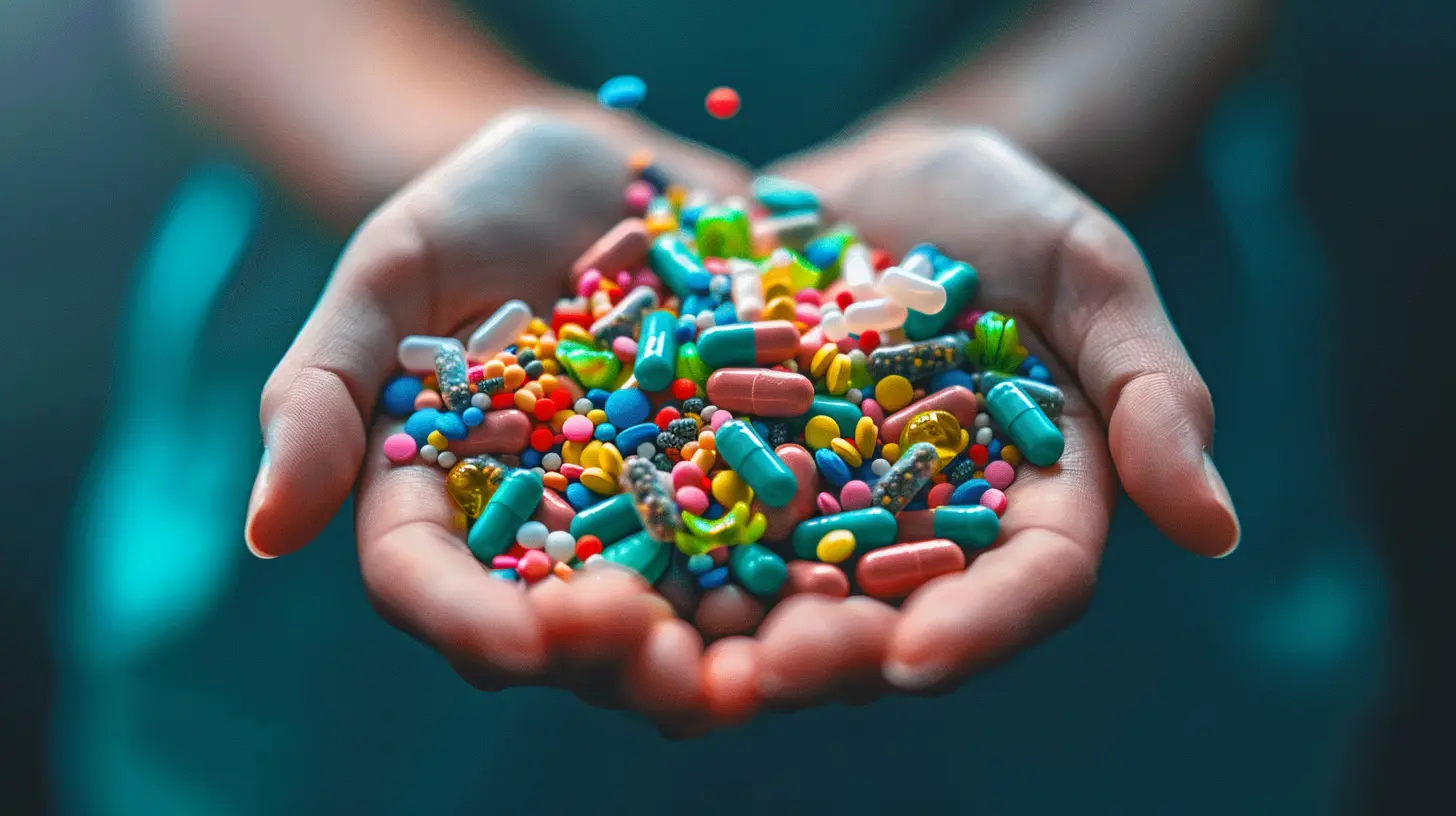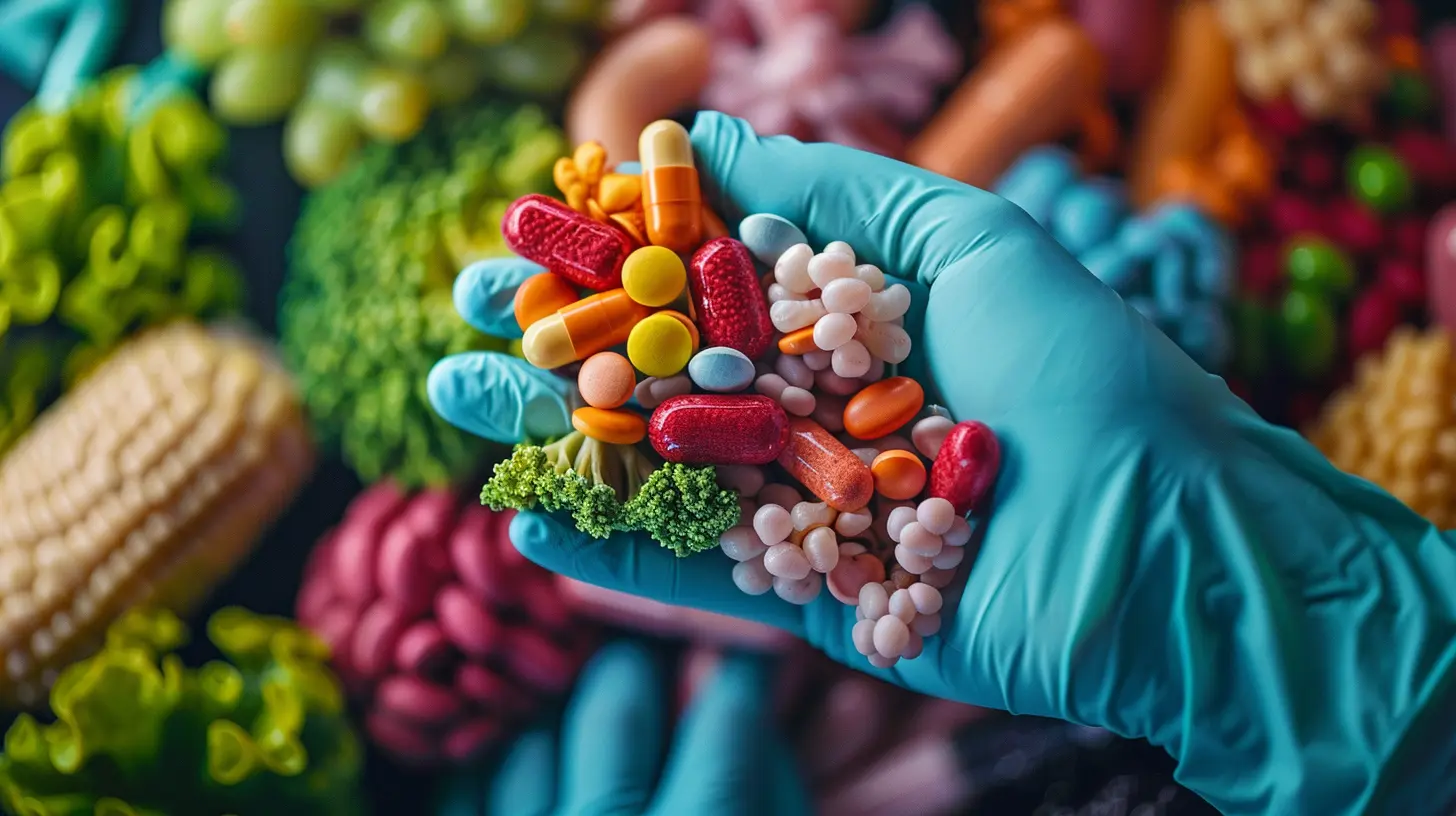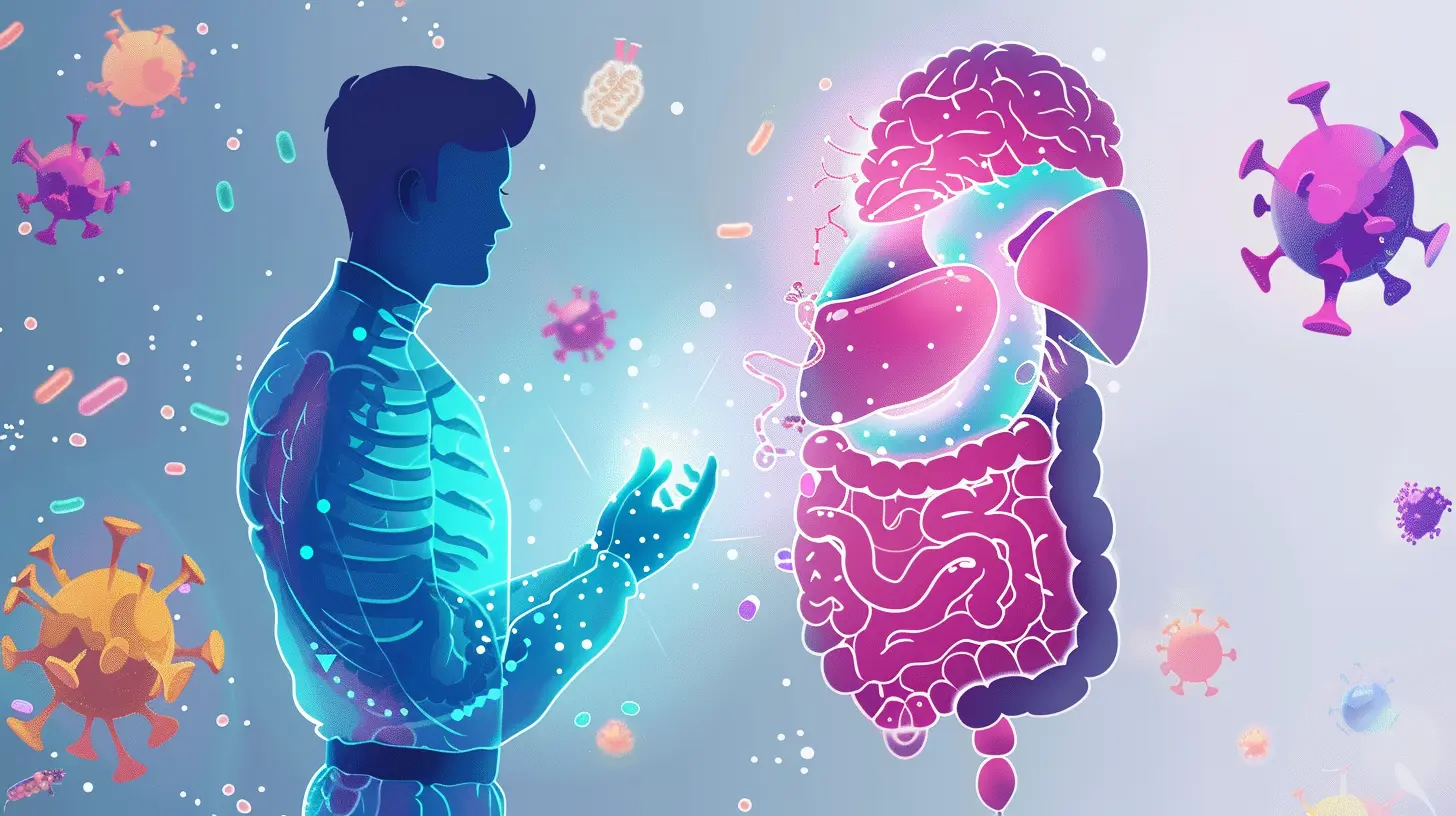Unlocking the Secrets of a Healthy Gut Microbiome
12 October 2025
Let’s talk about your gut — not your instincts, but your actual gut. You know, that long, twisty tube that turns your food into fuel, keeps you alive, and apparently knows more than we ever gave it credit for. Yep, we're diving deep into the science and soul of the gut microbiome — that bustling little world of microbes living inside you.
Think of your gut as an internal rainforest, teeming with life and diversity. When it’s lush and balanced, everything thrives — your digestion, your mood, your immune system, even your skin. But when it’s out of whack? You feel it. Bloating, fatigue, mood swings, breakouts — the list goes on.
In this article, we’re unlocking the secrets of how to keep that internal ecosystem healthy and happy. So buckle up, ‘cause your gut is about to get the TLC it deserves.
What Exactly Is the Gut Microbiome?
Alright, let’s clear this up first. Your gut microbiome is a complex collection of trillions (yep, with a “T”) of microorganisms, including bacteria, viruses, fungi, and other microscopic critters that take up residence mainly in the large intestine.Now, before you freak out — not all bacteria are bad. In fact, many of them are not just good, they're essential. They help break down food, produce vitamins (like B and K), regulate your immune system, and keep harmful bacteria in check. Imagine them as the unsung heroes working overtime with zero complaints.
Each person’s microbiome is unique — kind of like your gut fingerprint — shaped by your diet, environment, stress levels, medications, and even how you were born (vaginal delivery vs. C-section). Wild, right?
Why Should You Care About Your Gut Health?
Chances are, you’ve heard catchy phrases like “go with your gut” or “gut feeling.” There’s a reason for that. Your gut has a deep connection with your brain — it’s often called the “second brain” because of the gut-brain axis. This powerful communication link can influence your emotions, memory, and even decision-making.But wait, there’s more.
If your gut microbiome is out of balance — a condition known as dysbiosis — you might experience:
- Digestive issues (bloating, gas, constipation)
- Sugar cravings
- Mood swings or anxiety
- Skin conditions like eczema or acne
- Weakened immune system
- Weight gain or trouble losing weight
So if you're feeling "off" and can't quite put your finger on it, your gut might be the one raising the red flag.
Signs Your Gut Might Be Out of Balance
We often ignore subtle signs our body gives us. You shrug off the afternoon slump or blame your irritability on a bad night’s sleep. But your gut could be screaming for attention. Here are some red flags:- Frequent heartburn or indigestion
- Brain fog or difficulty focusing
- Persistent fatigue, even after a solid 8 hours
- Poor sleep or insomnia
- Food intolerances that seem to pop up out of nowhere
Sound familiar? Let’s dig deeper into how we can fix that.
The Diet–Microbiome Connection: You Are What You Feed
Imagine your gut microbiome like a diverse garden. To grow vibrantly, it needs the right soil (your gut lining), proper nutrients (your diet), and minimal pollutants (processed junk). And just like any gardener would tell you — diversity is key.Eat More Fiber (Your Gut Bugs Love It)
Fiber is the number one best friend of your gut bacteria. The kind of fiber that’s not digestible to you but makes your gut microbes throw a little party. We're talking fruits, veggies, legumes, whole grains — all that colorful plant goodness.Bonus: When your gut bacteria digest fiber, they produce short-chain fatty acids (SCFAs) like butyrate. These help reduce inflammation, repair your gut lining, and even lower your risk of chronic disease. Win-win.
Fermented Foods = Probiotic Gold
Yogurt, kefir, sauerkraut, kimchi, kombucha — these are like VIP guests in your gut party. They bring live bacteria (probiotics) that contribute to your microbiome diversity.But remember, not all store-bought versions are created equal. Look for “live and active cultures” on the label. And if you’re new to fermented foods, start slow. Your gut will thank you.
Limit Sugar and Processed Foods
Spoiler alert: Sugar and processed foods feed the “bad” bacteria. Think of it like letting weeds take over your garden. Over time, this imbalance can lead to inflammation, leaky gut, and even mental health issues.That sugary soda or bag of chips? Yeah, they’re doing more damage than you think.
Probiotics, Prebiotics, and Postbiotics — What’s the Deal?
Let’s break this down.Probiotics
These are the live good bacteria we talked about earlier. Found in fermented foods and supplements, they help replenish and diversify your gut flora.Prebiotics
Think of these as food for your probiotics. They’re compounds in fiber-rich foods (like garlic, onions, bananas, and oats) that help the good bacteria thrive.Postbiotics
These are byproducts created when probiotics feed on prebiotics. SCFAs are a good example. They have powerful anti-inflammatory effects and are basically the fruit of all this microbial labor.If probiotics are the guests, prebiotics are the catering, and postbiotics? They’re the after-party gifts.
Lifestyle Factors That Affect Your Gut
Food’s just one part of the puzzle. Your lifestyle habits may be helping or hurting your gut more than you realize.1. Sleep
Poor sleep hygiene can disrupt your gut flora. Aim for 7–9 hours of quality sleep, and don’t just binge-watch Netflix until 2 a.m. Your gut microbes have their own circadian rhythm too.2. Stress
Chronic stress messes with the gut-brain axis and can alter your microbiome. Meditation, walking in nature, yoga, deep breathing — these aren’t just calming activities, they’re gut-healing tools.3. Antibiotics and Medications
While antibiotics are sometimes necessary, they can wipe out good bacteria along with the bad. If you’ve been on antibiotics, consider a gut reset plan that includes probiotics and fiber-rich foods.Non-antibiotic meds like NSAIDs and antacids can also impact your gut lining — another reason to avoid overuse.
The Gut–Brain–Mood Connection
Ever notice how your stomach flips when you’re nervous? Or how you crave comfort food when you’re sad? That’s not just coincidence — it’s your microbiome chatting up your brain.Over 90% of serotonin (the feel-good neurotransmitter) is produced in the gut. So if your gut's unhappy, it’s no surprise that your mood might take a hit too.
Studies show that people with depression or anxiety often have less diverse gut bacteria. So yes, healing the gut might just help lighten your emotional load. It’s like therapy — but for your belly.
Simple Daily Habits for a Healthier Gut
Want a gut that hums along like a well-oiled machine? Try these daily gut-loving habits:- Start your day with a glass of water and a fiber-rich breakfast (hello oatmeal!)
- Add a spoonful of fermented food to one meal a day
- Move your body — even a 20-minute walk helps digestion
- Cut down on processed foods and refined sugars
- Eat the rainbow — different colored fruits and veggies mean diverse polyphenols for your gut
- Manage stress with breathwork, journaling, or a good belly laugh
When Should You See a Doctor or Specialist?
If you’ve tried all the diet tweaks and lifestyle changes and your gut is still throwing tantrums, it might be time to see a specialist. Gastroenterologists can check for underlying conditions like IBS, IBD, SIBO, or food intolerances.And remember — step one is listening to your body. You live in there 24/7. You’ll know when something’s off.
Final Thoughts: Your Gut Deserves the Spotlight
Your gut isn’t just a background player in your overall health — it’s front and center. From digesting your food to regulating your mood and immune system, it’s involved in practically everything.So why not treat it right?
Feed it fiber. Show it some fermented love. Cut back on processed junk. Chill out and get good sleep. Every little habit counts.
Because when your gut’s happy, you’re happy. Literally.
all images in this post were generated using AI tools
Category:
Gut HealthAuthor:

Jackson Mahoney
Discussion
rate this article
1 comments
Tessa Pope
Your gut's secrets: nourish wisely for a thriving microbiome!
October 24, 2025 at 3:52 AM

Jackson Mahoney
Thank you! Nourishing our microbiome is key to overall health—let's unlock its potential together!


